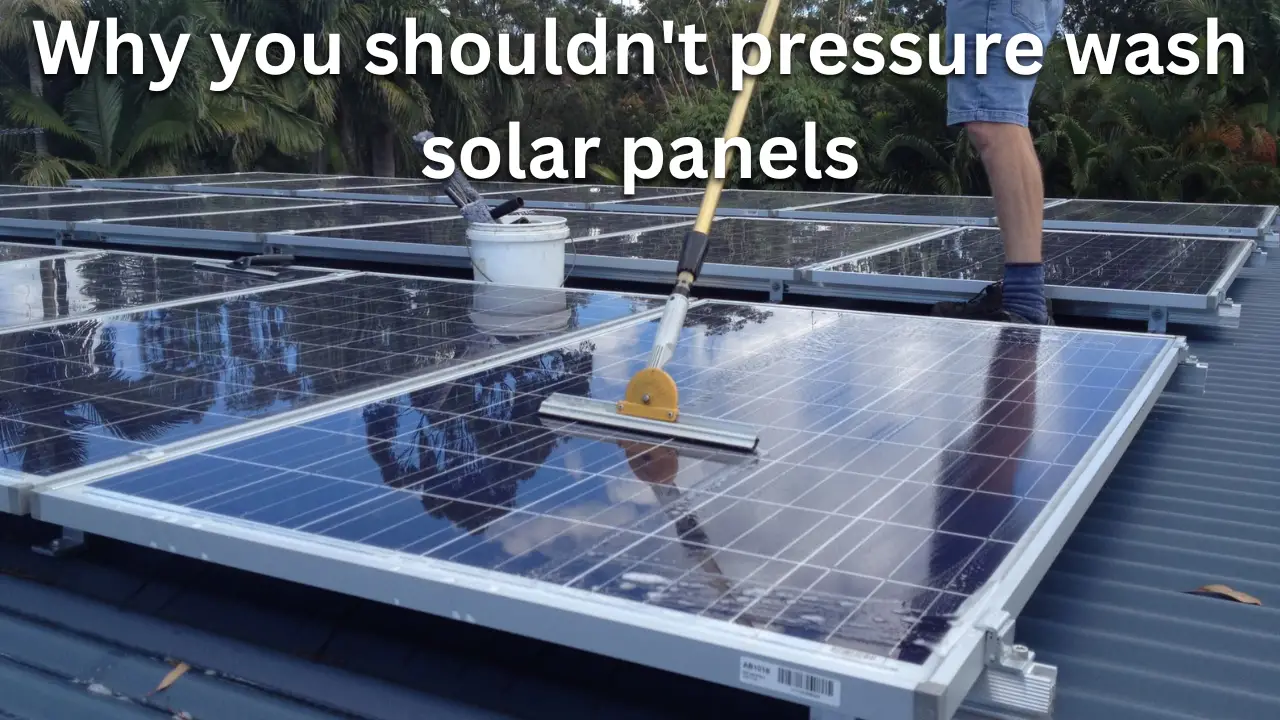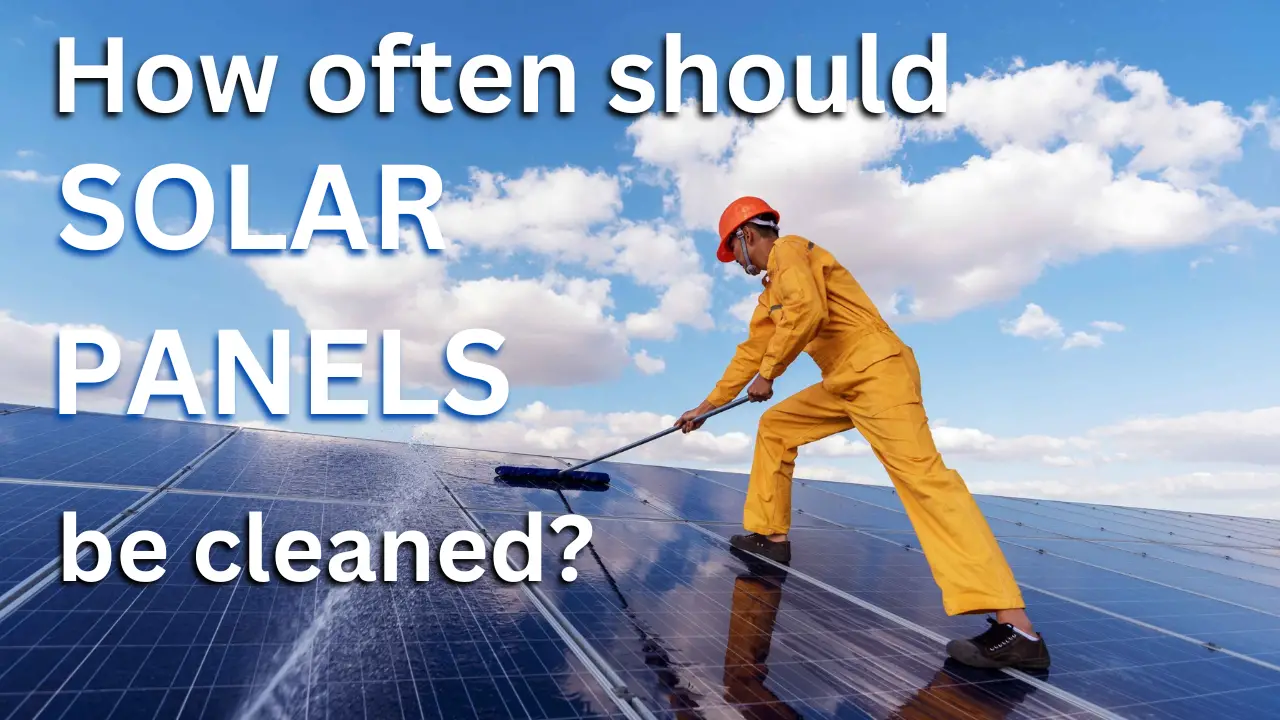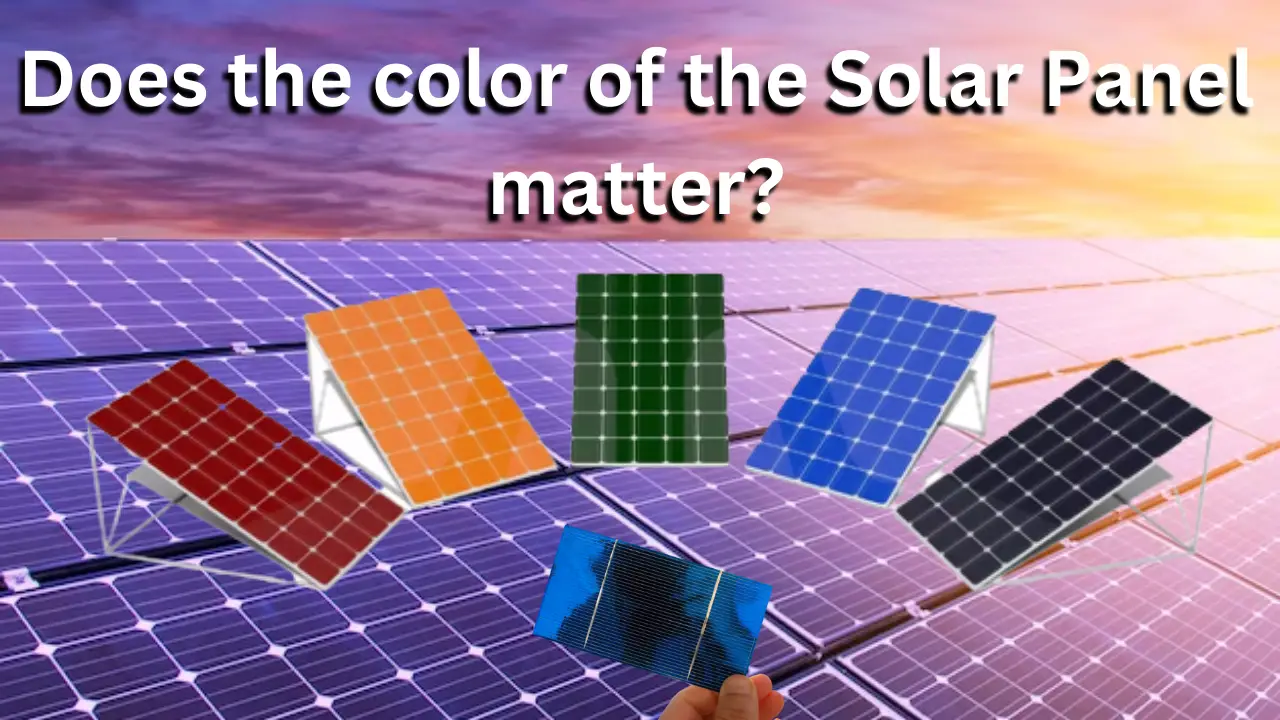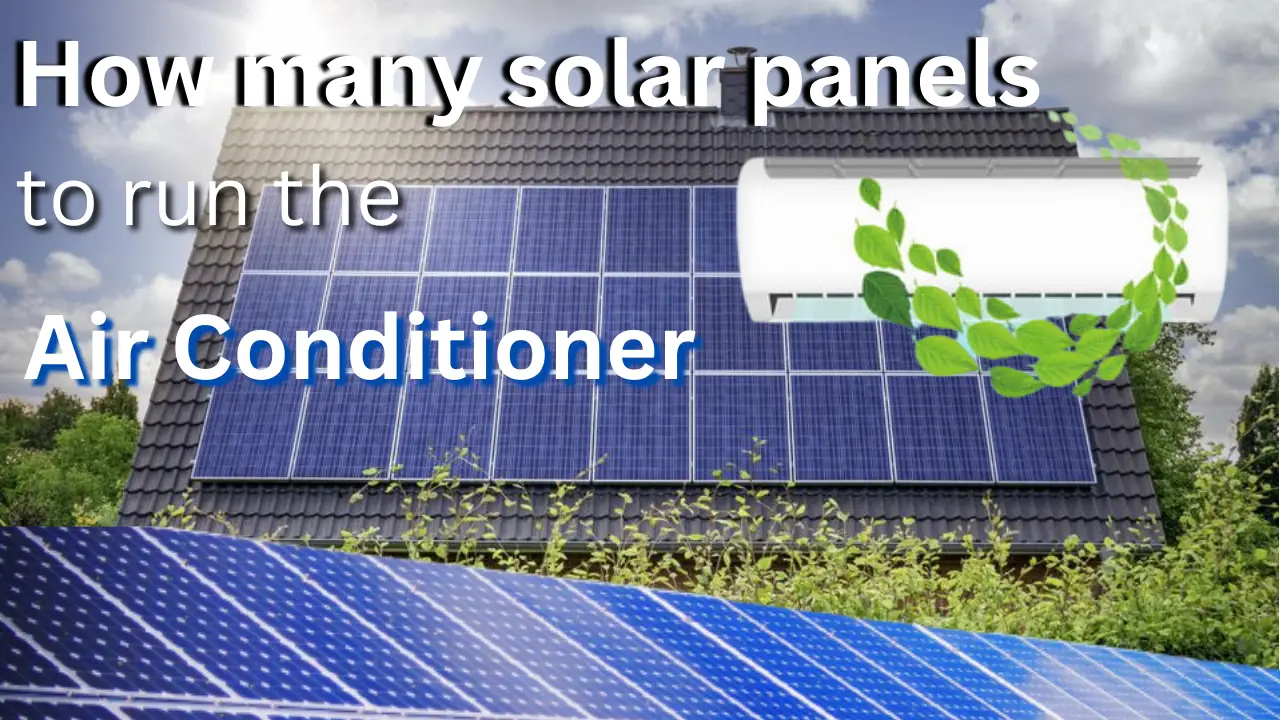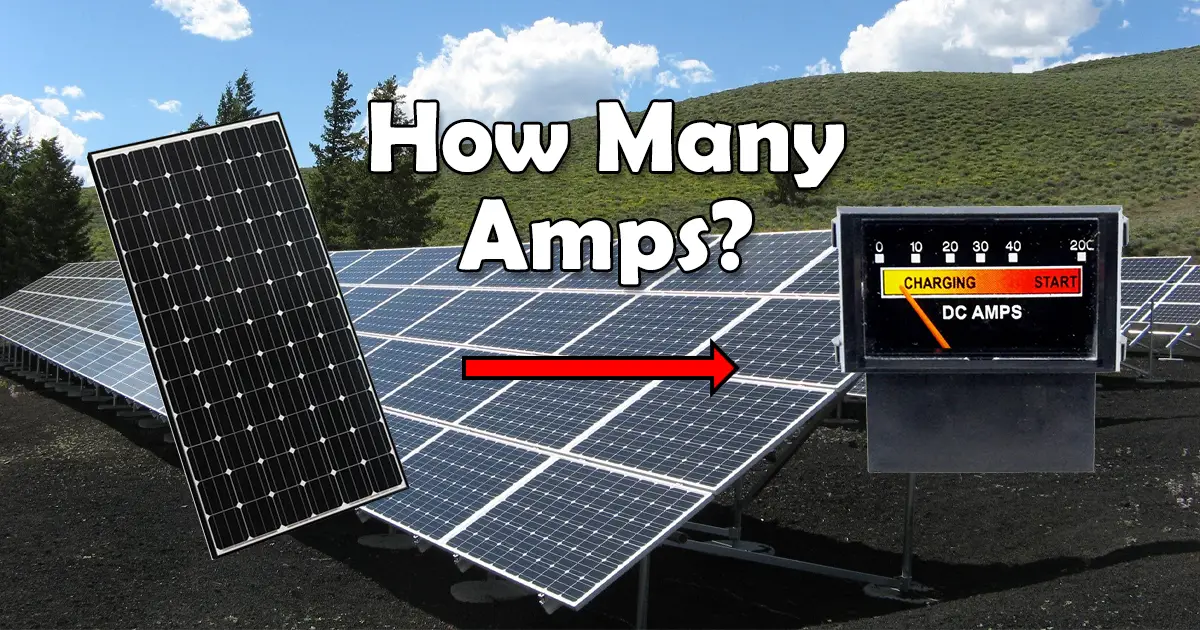Solar panels are increasingly popular for meeting household energy needs. They are an excellent investment for homeowners who want to save money on their energy bills and reduce their carbon footprint. These panels convert solar energy into usable power by generating an electric current.
Solar panels generate less energy and become less cost-effective when dirty, as the amount of energy produced depends on the amount of sunlight they receive. Solar panels still require regular cleaning and maintenance to prevent dirt accumulation, even in rainy areas.
While pressure washing may seem like a quick solution, it is not recommended due to the risk and negative impacts associated with it. In this article, we will explain the reasons why pressure washing should be avoided when cleaning solar panels.
In general, pressure washing solar panels can cause damage to delicate materials, wiring, and connections and pose safety risks. It can also have negative environmental impacts, polluting the environment with soap, dirt, and debris. A better way to clean solar panels is to use a soft brush and water, which is a safer and more effective method.
What happens when you pressure wash solar panels?
Pressure washing may seem like a quick and easy solution for cleaning solar panels, but it can cause several issues that may be detrimental to their long-term performance.
Paint Damage
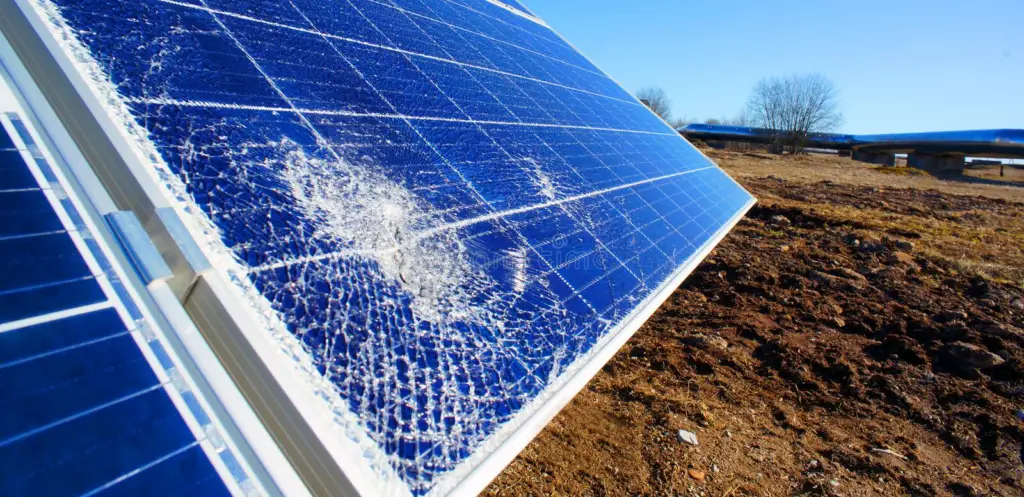
The protective coating that covers the metal frame of solar panels and prevents it from being harmed by the environment may come off under extreme pressure. If enough pressure is exerted over time, they may even begin to separate from the glass panes, making them more susceptible to the impacts of the environment and the risk of suffering irreparable damage from rust and corrosion.
This damage may reduce the solar panels’ value to prospective buyers if you intend to resell them in the future. In order to prolong their usefulness, you can wind up paying a fair lot on maintenance and repairs over time.
Damage to frame
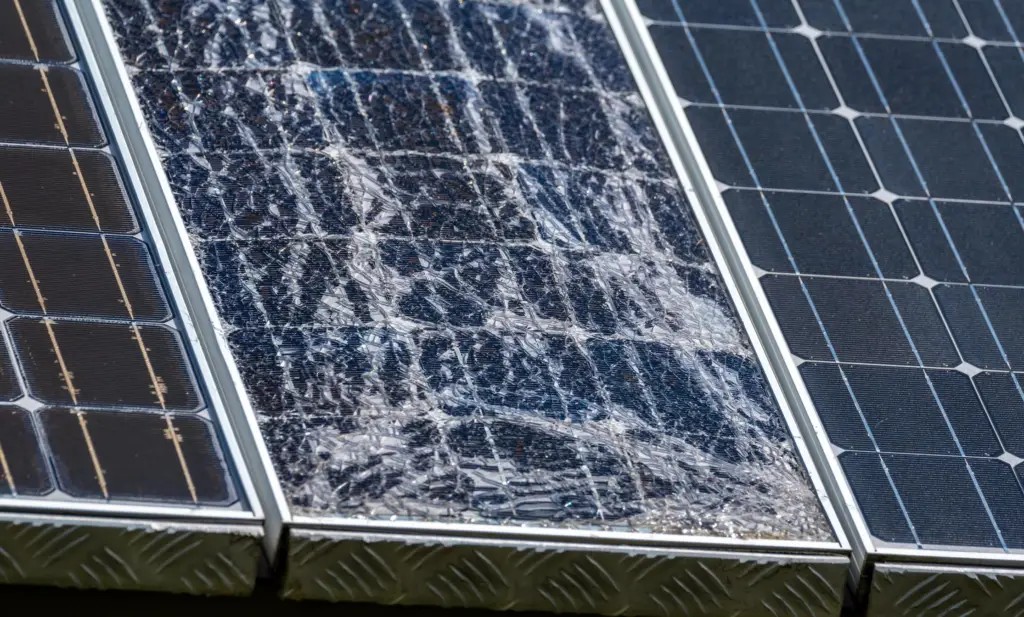
Solar panels have a metal frame that surrounds the glass panes that protect the solar cells. This metal frame is typically coated with a protective layer that shields it from the environment. However, when pressure washing solar panels, the high-pressure water can damage this protective coating and even remove it completely, leaving the metal frame exposed to the elements.
Over time, this exposure can lead to rust and corrosion, weakening the metal frame and potentially leading to more serious damage. Additionally, the metal frame may begin to separate from the glass panes if exposed to enough pressure, creating a void space that could allow water or debris to penetrate the solar panel and cause further damage. If this type of damage occurs, it could decrease the value of the solar panels if the homeowner wishes to resell them.
Warranty Denied
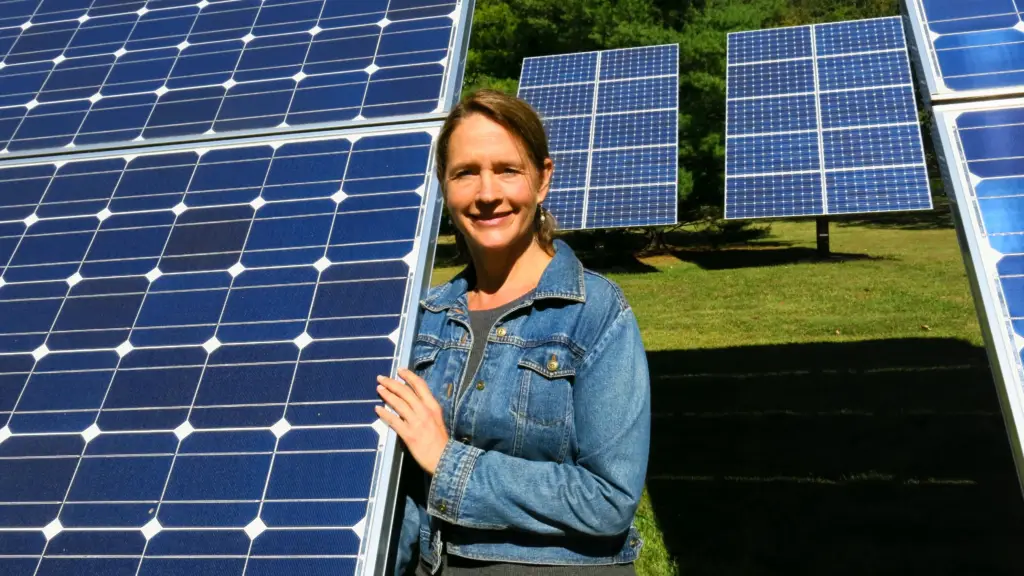
Most solar panel manufacturers advise against using a pressure washer on their products, and some even stipulate that doing so would void the warranties on their products. This is due to the reasons discussed earlier, as well as the fact that there is a risk that high pressure could enable water to seep between the glass panes and onto the PV system, shattering the vacuum seal.
Overspray
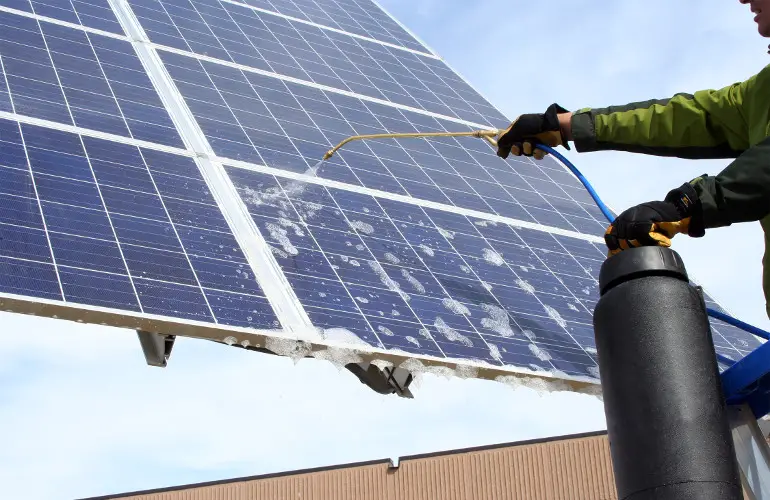
While washing solar panels with a pressure washer, overspray is a potential issue that may arise. The use of pressure washing as a cleaning method for rooftops has gradually been recognized as harmful. Nearly every kind of roofing material that may be cleaned with pressure washing has some kind of drawback.
If the water is not directed in the correct manner, it may shoot water underneath your roof, causing damage to the outer coatings of your composite, tile, or clay roofing that may last for years.
Instead of putting too much water on solar panels while you are pressure washing them, you should consider using one of the available alternative cleaning methods.
How exactly should one clean solar panels?
Solar panels can be cleaned via a wide variety of methods, including fully automated cleaning systems and manual cleaning. Rainfall has the ability to wash away part of the dirt that accumulates over time on the surfaces of solar panels.
But, rainwater can also cause dirt to gather at the bottom of the panels, and it is not enough to eliminate major pollution.
Tools such as Brushes and Sponges
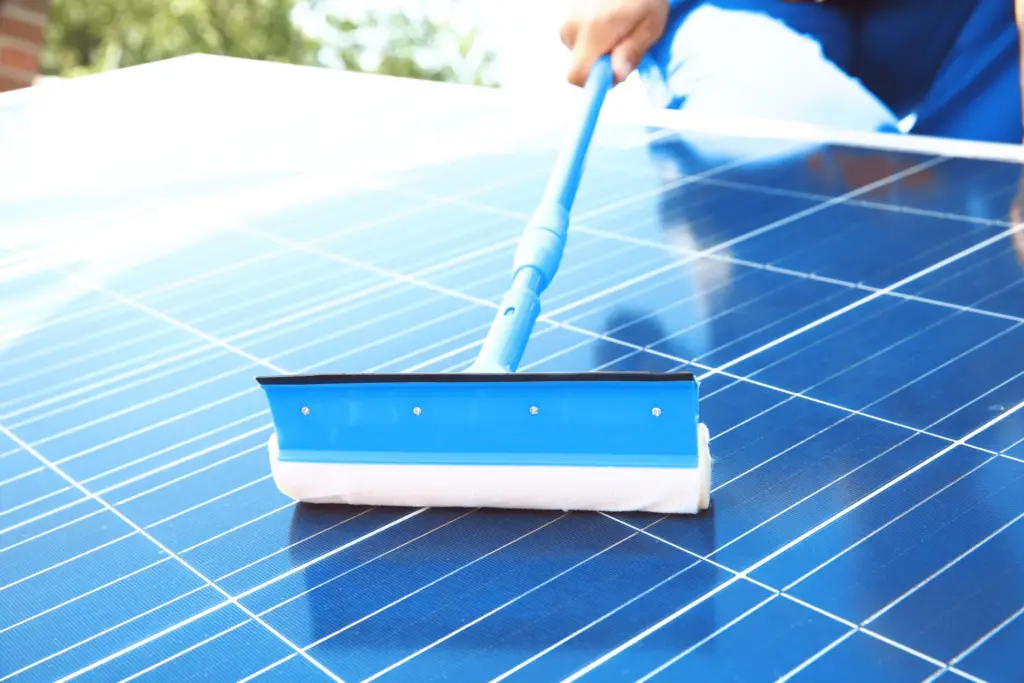
Solar maintenance companies such as the United States-based Bland Company and Premier Solar Cleaning have found that cleaning solar panels with deionized water and a rolling or vehicle-mounted brush is more effective than using soap, which leaves a residue that not only shades panels but also attracts dirt. Soap also leaves behind a scent, which can be unpleasant for customers.
The lubricant manufacturer Polywater has developed a Solar Panel Wash that makes it easier for water to remove debris without leaving a residue behind. Combining vinegar that has been diluted with hydrogen peroxide is yet another method for cleaning grime.
In addition, homeowners can manually clean their solar panels with a garden hose and a gentle sponge without the use of any cleaning products if they have access to these items.
A Gentle Soft Wash
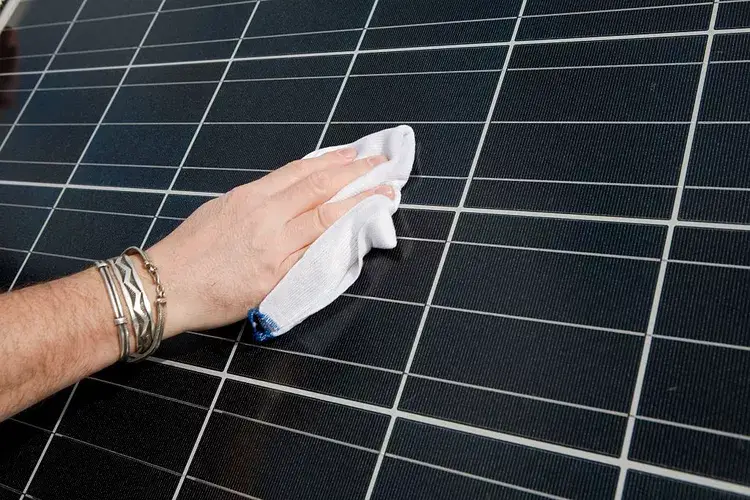
The time-honored practice of physically cleaning the PV panels yields satisfactory results. Robots, waterless vibrations, and unique coatings are all examples of technologies that, despite their ingenuity and usefulness, can be extremely pricey and, in certain contexts, completely worthless.
This is especially true for installations with a limited scope, such as residential or commercial, as well as for one-of-a-kind buildings and installations. While performing a soft wash on solar panels, there are a few items that will prove to be of great assistance in ensuring that the task is carried out effectively.
On the one hand, a number of different kinds of rotating specialized brushes are used to clean the panel of the soil that has accumulated there. It is also possible that we will use any simple instrument for cleaning, like the ones that are used on the windshields of cars.
On the other hand, if we were to finish the task by utilizing water-pressure equipment such as the Karcher High-Pressure Washer, we would be able to do it much more quickly while also conserving a significant amount of water.
What Are Some Tips For Cleaning Solar Panels?
When washing solar panels, cooler days are preferred since they lessen the glass’s chance of breaking as the water dries. Another piece of advice that you may have heard is to avoid spraying water on heated solar panels.
I highly doubt that pouring a hose on a heated solar panel would cause it to break or shatter, but it’s definitely better not to try since you’d probably feel rather foolish if you succeeded in disproving me.
It is not recommended to wash solar panels with harsh detergent. A solution of one part vinegar, one part mild, non-abrasive detergent, and eight parts water can be used to quickly and easily clean the glass of solar panels at home.
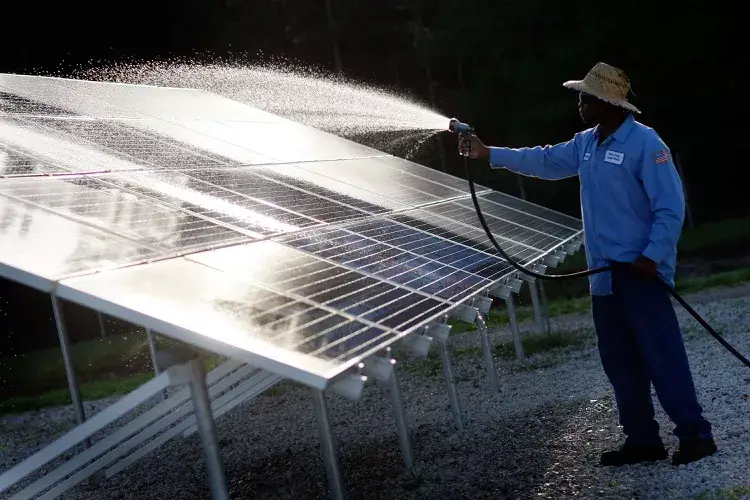
Solar panels must be turned off prior to cleaning, and the underside must never be handled. The safest way to clean solar panels from the ground up is to wear gloves and use extension tools. Yet, homes with a second or third story might require climbing a roof.
A homeowner might consider contacting a local solar power specialist to clean their solar panels if they are unsure of their ability to do it safely.
Is It Worth It to Clean Your Solar Panels?
Generally, the answer to this would be no, especially if you prefer hiring a reputable business to clean them over doing it yourself. Simply put, the return on investment is insufficient to warrant the bother. Let’s look at some statistics. A 5% or less drop in output is about what you can anticipate when your solar panels become dirty. And that only applies when they are “Really” dirty.
In most climes, if there is dust or debris on the solar panels and their energy output is recorded as being 5% lower than at other times, the next rain will wash the debris away, restoring the solar panels to their ideal efficiency. It will rain again, even if you live in a region that is prone to drought.
Conclusion
In conclusion, while solar panels are an excellent investment for homeowners who want to save money on their energy bills and reduce their carbon footprint, pressure washing should be avoided when cleaning them. Pressure washing can cause damage to the delicate materials, wiring, and connections of solar panels, and it can have negative environmental impacts.
Additionally, it may void the warranty of the solar panels and decrease their value if homeowners want to resell them. Instead, homeowners can clean their solar panels using gentle methods such as using a soft brush and water or a vehicle-mounted brush and deionized water.
Ultimately, following the manufacturer’s guidelines and recommendations for cleaning solar panels is essential to ensure their longevity and efficiency.

